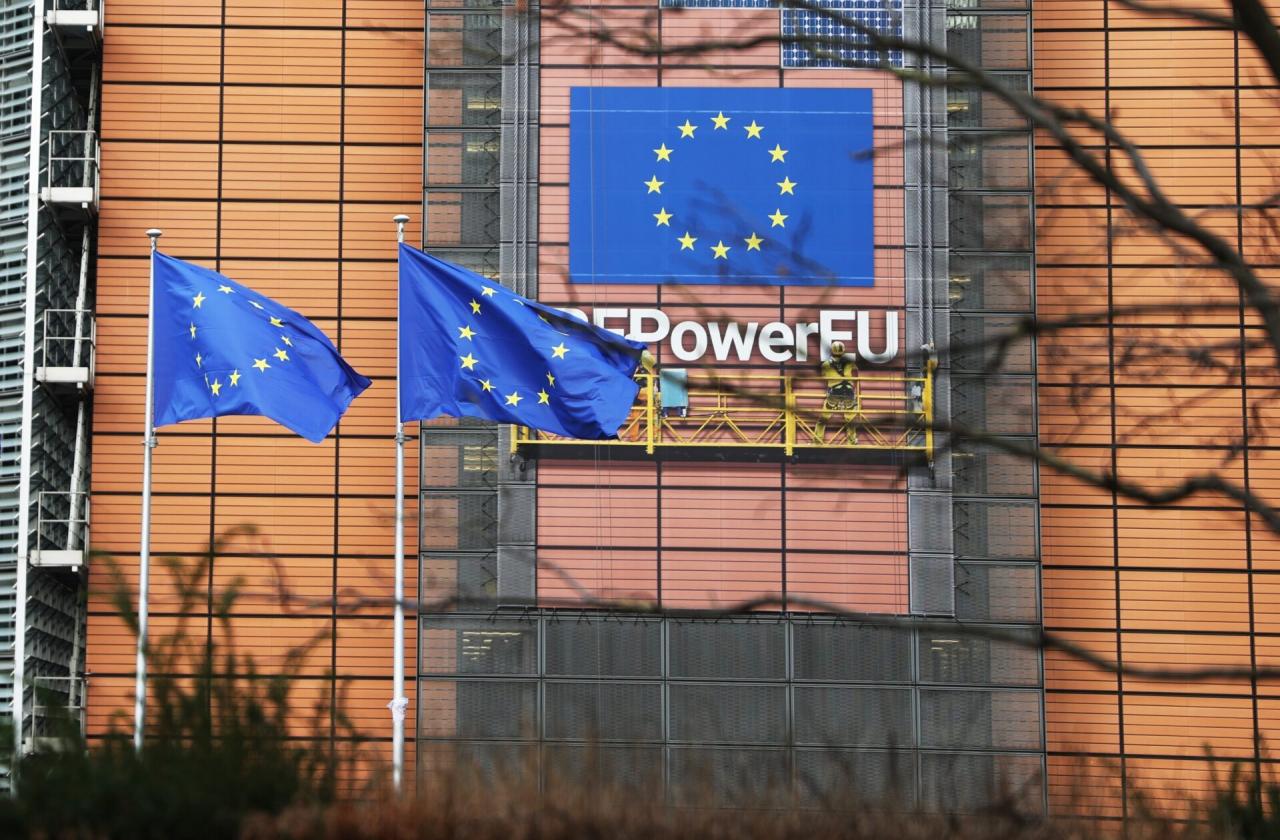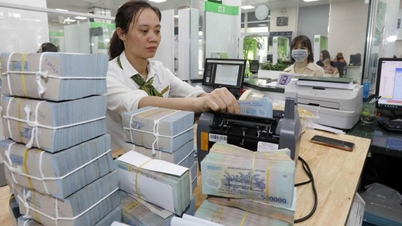In recent months, inflation in the Eurozone has cooled and fallen to its lowest level in more than two years. This has raised hopes that the European Central Bank (ECB) may soon abandon its tight monetary policy, paving the way for interest rate cuts. However, most economists believe the ECB will keep interest rates stable until mid-2024. The first rate cut by the ECB is likely to occur only in July next year.

The European Commission (EC) building in Brussels, Belgium. Photo: THX/VNA
The risk still exists.
The latest figures from the European Statistical Agency (Eurostat) show that in November 2023, the consumer price index (CPI) in the Eurozone rose by only 2.4%, 0.3 percentage points lower than analysts' predictions and significantly lower than the peak of 10.6%. This is also the lowest inflation rate since July 2021.
Although falling inflation has raised hopes that the ECB may soon cut interest rates, the likelihood of this scenario depends heavily on fluctuations in international commodity markets, particularly the energy market, and the financial stability of the region.
Currently, ECB officials remain quite concerned about the risk of inflation rising again due to the impact of a new shock in the energy market. Bert Colijn, senior eurozone economist at ING bank, said: “The ECB remains worried that factors such as wage growth and the risk of a surge in energy prices could cause inflation to rise again.”
Another issue causing considerable concern for the central bank's policymakers is the financial stability of the Eurozone. On November 22, the ECB warned that the outlook for financial stability in the Eurozone remains fragile due to tighter financial conditions, high inflation, and geopolitical tensions casting a shadow over the region.
In the latest Financial Stability Review report, ECB Vice President Luis de Guindos stated: “The gloomy economic outlook coupled with the consequences of high inflation is making it difficult for individuals, businesses and governments to repay their debts.” “It is important that we remain vigilant as the economy moves into an environment of higher interest rates accompanied by increasing geopolitical uncertainties and tensions.”
The report warns that an economic recession is a "possible scenario" due to the worsening outlook. The full impact of rising borrowing costs on economic activity has yet to be felt, and many sectors may face challenges as debt service costs increase. The report also mentions the real estate market, which the ECB believes is entering a recession.
Furthermore, according to the report, banks – which have benefited from rising interest rates – may face difficulties as higher borrowing costs lead to decreased demand for loans.
Furthermore, the report highlighted heightened concerns about the stability of the Eurozone due to the outbreak of the Israel-Hamas conflict.
When will the ECB cut interest rates?
The latest Reuters poll suggests the ECB is likely to keep interest rates stable until mid-next year. The poll, conducted by Reuters from November 8th to 13th, involved 72 leading economists. All of them agreed that the ECB will not raise interest rates in the current cycle.

A shop displays a discount sign in Brussels, Belgium. Photo: THX/VNA.
Although financial markets were hoping for an interest rate cut in April 2024, the latest Reuters poll suggests that this is unlikely, especially after ECB President Christine Lagarde's statement in October that "it is too early to even discuss a rate cut."
In a Reuters poll, a majority of economists predict that the ECB's first interest rate cut may not occur until at least July 2024, despite predictions of a potential recession in the Eurozone. Specifically, 40 out of 72 economists predicted that interest rates would remain at their current level until mid-next year. The remainder forecast a rate cut before the ECB Governing Council meets in July 2024.
Peter Vanden Houte, chief economist for the Eurozone at ING bank, noted that the ECB has acknowledged weaker-than-expected growth. However, Houte stressed: “That doesn’t mean the ECB will rush to cut interest rates… We don’t expect any rate cuts before the summer of 2024.”
A sooner-than-expected interest rate cut would likely only occur if there is a recession deep enough to prompt the ECB to ease monetary policy even if inflation remains above the central bank's 2% target.
However, in a Reuters poll, only 15 out of 35 economists predicted another contraction in the fourth quarter of 2023, after the Eurozone economy had already shrunk by 0.1% in the third quarter, officially marking the Eurozone's entry into recession. Meanwhile, the forecast for the sharpest GDP decline in the coming quarters was only 0.3%. Specifically, when asked what type of recession the Eurozone might face, 24 out of 29 economists surveyed believed it would be a short and shallow recession, while only 3 out of 29 predicted a long and shallow recession, 1 out of 29 predicted a long and deep recession, and 1 out of 29 predicted a short and deep recession.
Hoang Anh


















































































































Comment (0)